What is "Conservation Leadership"?

This is the first in my personal series of WildHub Conservation Catalyst posts in which I share the Lessons Learned, knowledge, experiences, and ideas of other members ... with you! Who knows, the content may end up motivating, inspiring, and guiding us all to be better conservationists in ways previously unknown.
My name is Natalie Rhoades and I am your writer for today.
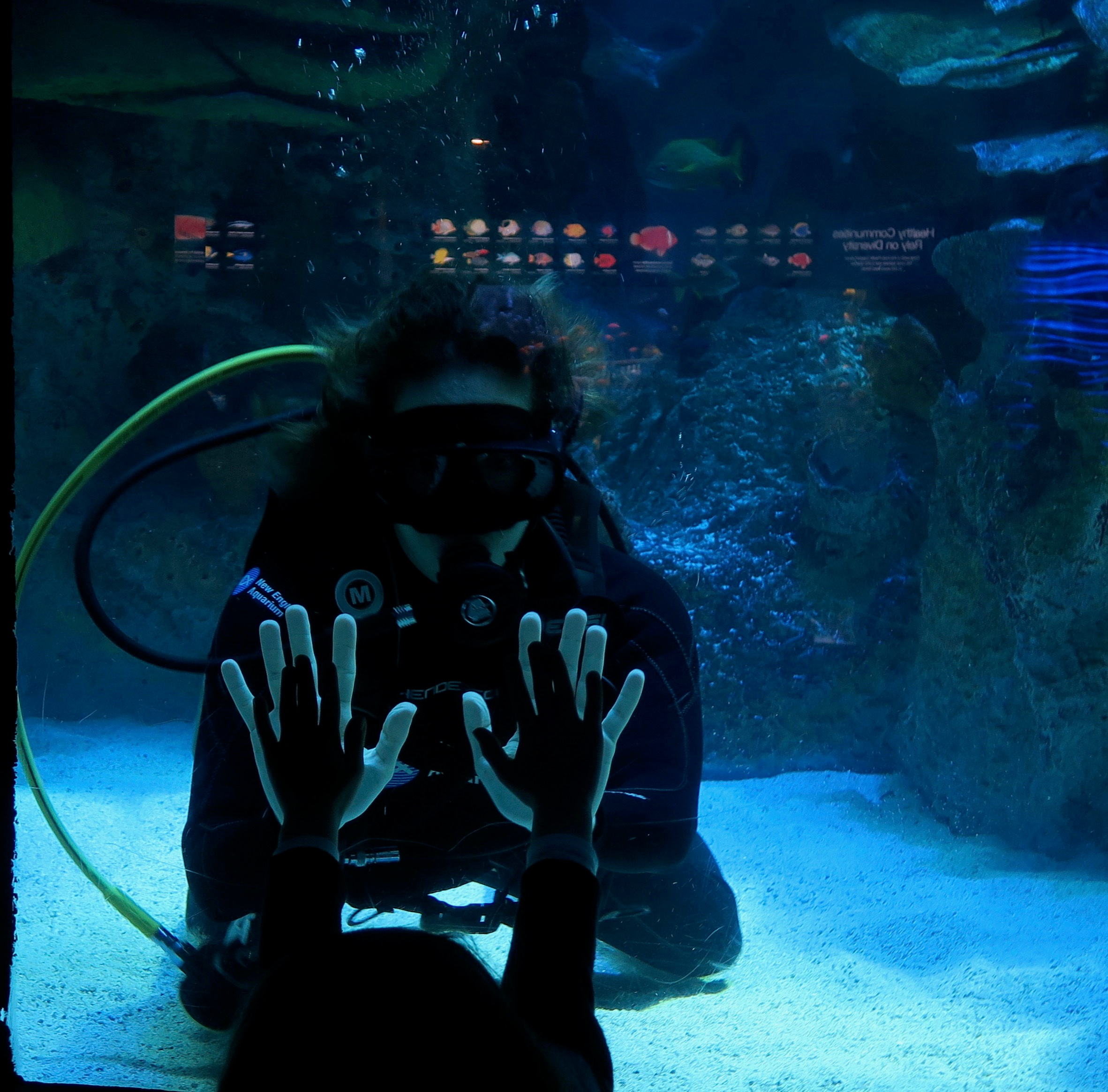
MCAF Fellow Kerstin Forsberg (Peru) shares a special moment with her daughter while diving in NEAq’s Giant Ocean Tank. Photo: Elizabeth Stephenson
I had the pleasure of sitting down with Elizabeth Stephenson - virtually, of course - to talk about conservation leaders and leadership. Elizabeth is the Director of the Marine Conservation Action Fund (MCAF), a program of the Anderson Cabot Center for Ocean Life at the New England Aquarium (NEAq) and has been with the NEAq going on 13 years. Driven by her long-time desire to be an ocean conservationist and her affinity for helping other people achieve their conservation goals, Elizabeth made the leap from science education to MCAF - a program that seamlessly combines the two. When hired, MCAF was primarily about grants, but under Elizabeth’s leadership, the program has added a valuable fellowship program that fosters relationship development and support within the global conservation community.
When confronted with the term conservation leader, I only had an instinctual feeling about what it was. We all probably have our own definition of what it means and Elizabeth put it nicely:
A conservation leader is a visionary catalytic agent of change, but who is not a solitary figure - one who takes in and reflects the needs and goals of their communities.
Additionally, they are inherently forward-thinking and use their participation in a wider conservation network to set up a legacy for others to join and carry on. It is crucial that conservation leadership is community-driven and helmed by talented and determined individuals who are in it to win it - for the planet! These leaders want the greatest diversity of folks to be involved in and advocate for conservation because the greatest impact is achieved when the greatest global perspective is considered.
So, what exactly does MCAF do? First, it provides financial support via grants. Second, it builds two-way enduring relationships with grantees, and especially with fellows, to support long-term success, impact, and influence.
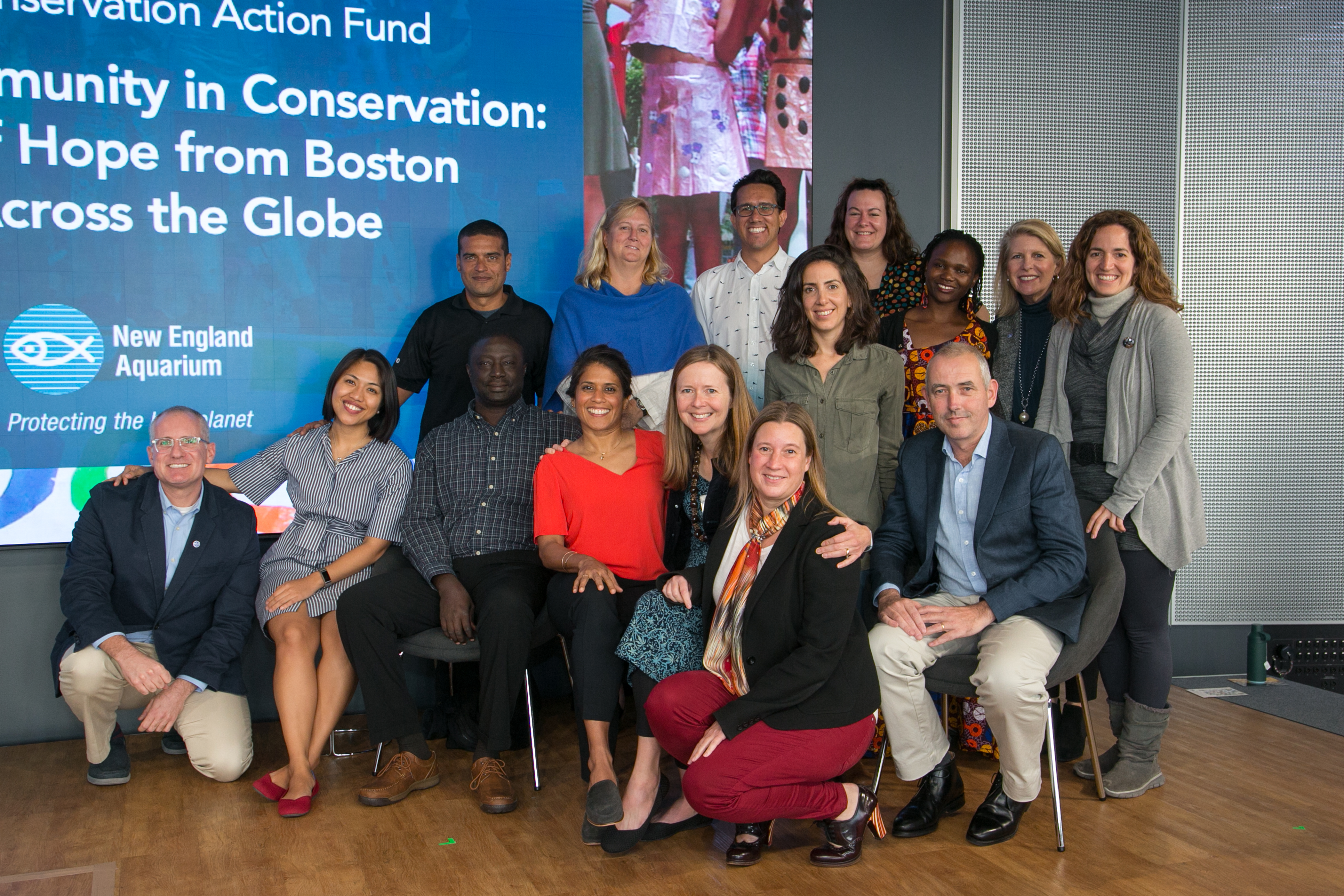
MCAF works to build a supportive global community of conservation leaders. Here are many of the MCAF Fellows at the first global summit in Boston in 2019. Photo: Reba Saldanha
Beginning in 1999, MCAF started as a sort of "funding ambulance" for the ocean, devoting funds for time-sensitive situations, e.g. oil spills and net entanglement events. It also had a key role in seeding projects that didn't have the benefit of longevity as a means to establish leverage for further funding. To Elizabeth and her NEAq colleagues, it was apparent that MCAF could provide so much more than financial support, and so the fellowship program was born in 2015. It provides recognition, a public platform, technical support, and ultimately a long-term relationship for Principal Investigators (PIs) and their projects.
Starting out, MCAF funded projects all around the world, but about 10 years ago a policy of directing funds to low and middle-income countries was established. Elizabeth stressed that MCAF is actively working to support and provide space for conservation leaders who represent in-community and in-country work. This year is the first where PIs new to the MCAF program are required to be from the low or middle-income country or wider region where their conservation work takes place!
A big topic of interest to the WildHub community is Lessons Learned and Elizabeth had plenty of them to share. What better way to inform or own conservation efforts than to learn from someone who has spent over a decade involved with a variety of conservation leaders and their projects?
Without having to think about it, Elizabeth's first Lesson Learned was the value of listening attentively. She didn't start her position knowing how to do everything, but the people who MCAF has supported over the years have taught her so much about conservation and guided MCAF as a whole.
Developing an understanding for how long it takes to achieve conservation outcomes was a close second, coupled with the reality of mismatched funder expectations and project timelines. It's important to recognize that completing small milestones are real achievements and add up to the big wins - it can take years to compile datasets to justify a regulation or to build up community buy-in. Doing things well takes time.
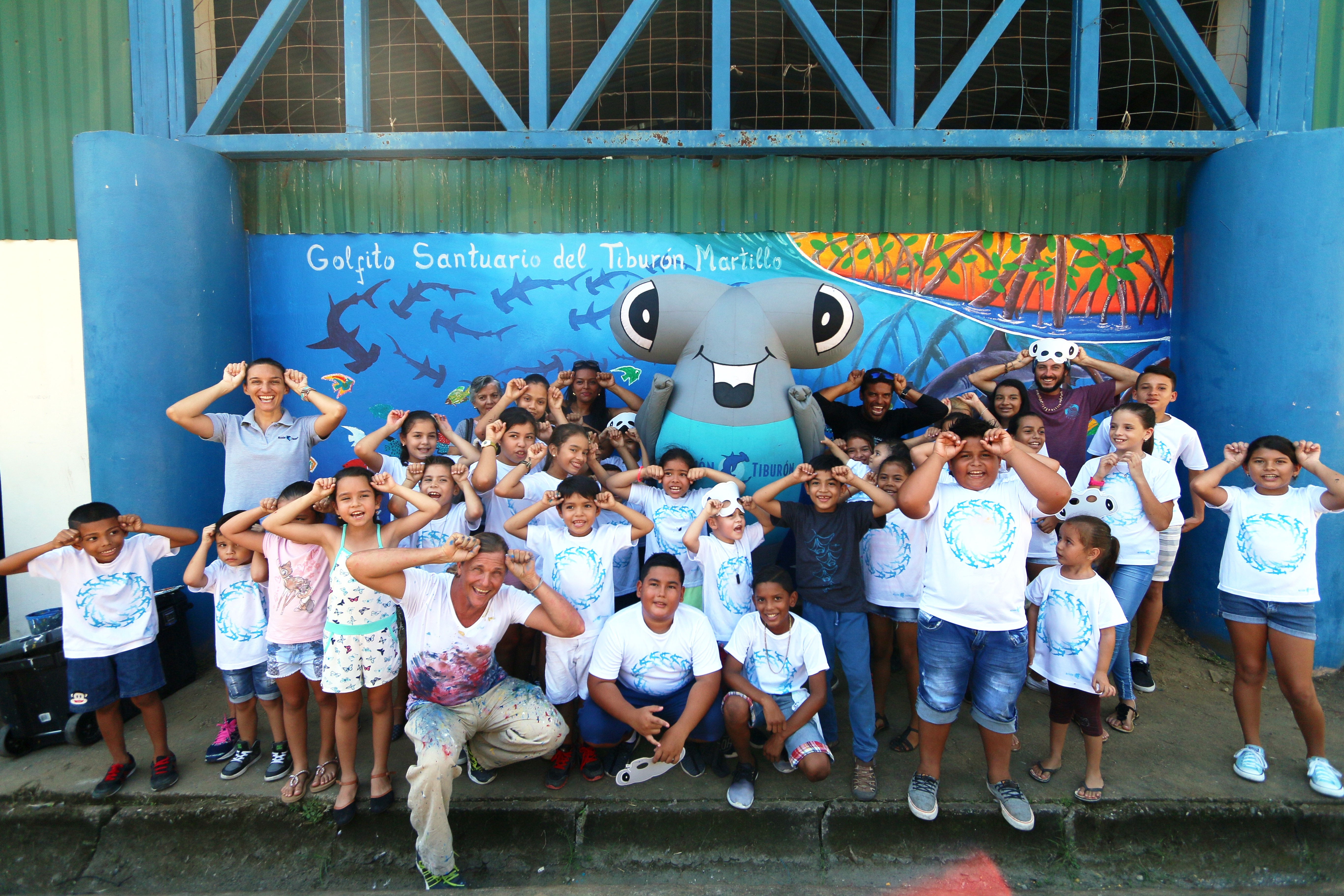
Conservation leaders are most successful when they partner with local communities, as shown by the pioneering work of Misión Tiburón Costa Rica, an NGO that has long been part of the global MCAF community. Photo: Misión Tiburón
Finally, Elizabeth addressed "colonial science" when quoting current MCAF Fellow and founder of Oceanswell, Dr. Asha de Vos:
To save our oceans, every coastline needs a LOCAL hero – someone who speaks the language, can see the problems, and can help to address the solutions – someone who is invested in the long-term.
MCAF strives to provide the space and funds for these heroes because the investment in local human capacity and infrastructure is critical to establishing a conservation legacy in communities - if outsiders come in with their own people, money, equipment, and assumptions ... and then leave without partnering with and investing in the community ... the local community has not benefited and any conservation gains may be fleeting. Although there are examples of positive two-way global partnerships, the practice known as “colonial”, “parachute” or “helicopter “science reinforces an unfair and unjust power imbalance and, it’s also not an effective strategy for achieving robust and lasting conservation outcomes. You can read more about this topic from Dr. Asha de Vos' opinion article for Scientific American. You can also consider the steps to ending "colonial science" in Ashley Yeager's article for The Scientist, including contributions from Dr. Asha de Vos and others.
My final questions focused on happy aspirations and feelings: 1. If resources were not a limiting factor, what kinds of conservation work would you be excited to see happen? 2. What MCAF projects have been particularly inspiring to you?
In true WildHub enthusiasm, the answer to question one was "big unrestricted support" for all conservation leaders, their organizations, and their communities; Elizabeth wants to see the development of many more entry points for early-career conservationists (as one of these myself, I emphatically support this ambition); she dreams of seeing mentorship more easily facilitated and monetarily supported - there is often an opportunity cost to providing mentorship in under- resourced countries.
Lastly, Elizabeth addressed conservation accessibility. There are so many talented folks outside of traditional networks who may lack the connections, visibility and resources to access funding opportunities. Language is oftentimes an accessibility barrier - e.g., when applications and websites are only offered in English. Reaching the greatest diversity of people with the greatest diversity of perspectives and experiences only serves to benefit conservation in the long run.
To wrap up the interview, Elizabeth couldn't choose just one project to single out as being inspiring. This wasn't a surprise since she mentioned multiple times how incredible all the grantees and fellows are! She has learned something new from every one of them and admires how they are fluent in the many languages of conservation such as science, education, advocacy and outreach. At the end of the day, Elizabeth is inspired by holistic projects that understand how interdisciplinary conservation has to be and the persistence required by all stakeholders to achieve long-lasting conservation impact.
For questions about MCAF please contact the NEAq MCAF Team - Elizabeth Stephenson (estephenson@neaq.org; https://wildhub.community/users/387047-elizabeth-stephenson) and Bess-Lyn Edwards (bedwards@neaq.org; https://wildhub.community/users/396437-bess-lyn-edwards).
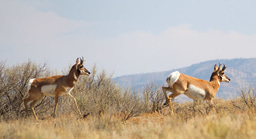
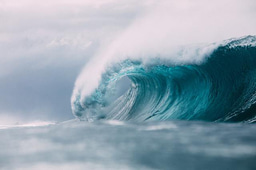

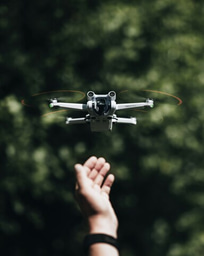
Please sign in or register for FREE
If you are a registered user on WildHub, please sign in
Thank you Natalie for this post and for sharing your passion! I really enjoyed reading about your experiences and how Elizabeth has been such an inspiration and guiding force for you. Your post provided some great reminders for me to bring back to my team and my organization as we continue to define conservation leadership within our own organization and how it should be aligning with the field of conservation leadership. Thank you again!
I'm so pleased you've discovered material to take back to your team at Denver Zoo! Thank you for reading and your kind comment.
Thank you for this opportunity, Natalie! It was such a pleasure working with you! Thank you for shining a light on the work of MCAF Fellows and Grantees!
Thank you, Elizabeth, for participating!
Thanks for sharing this Natalie, it was a pleasure to read and well written. I like the quote from Elizabeth "A conservation leader is a visionary catalytic agent of change, but who is not a solitary figure - one who takes in and reflects the needs and goals of their communities."
Fantastic job Natalie for synthesising Elizabeth's lessons learned; I really enjoyed reading it and liked your personal writing style (you can be our writer of the day on any day!). Big thank you to Elizabeth for your time and input. So wonderful when members team up to catalyse the sharing of lessons learned to advance conservation!
Thank you Natalie and Elizabeth. I love the drive towards a "local hero" as they know their home environment better than most and think it is so important. I think accessibility is definitely a key issue in conservation and something I hope many organisations are working towards tackling.